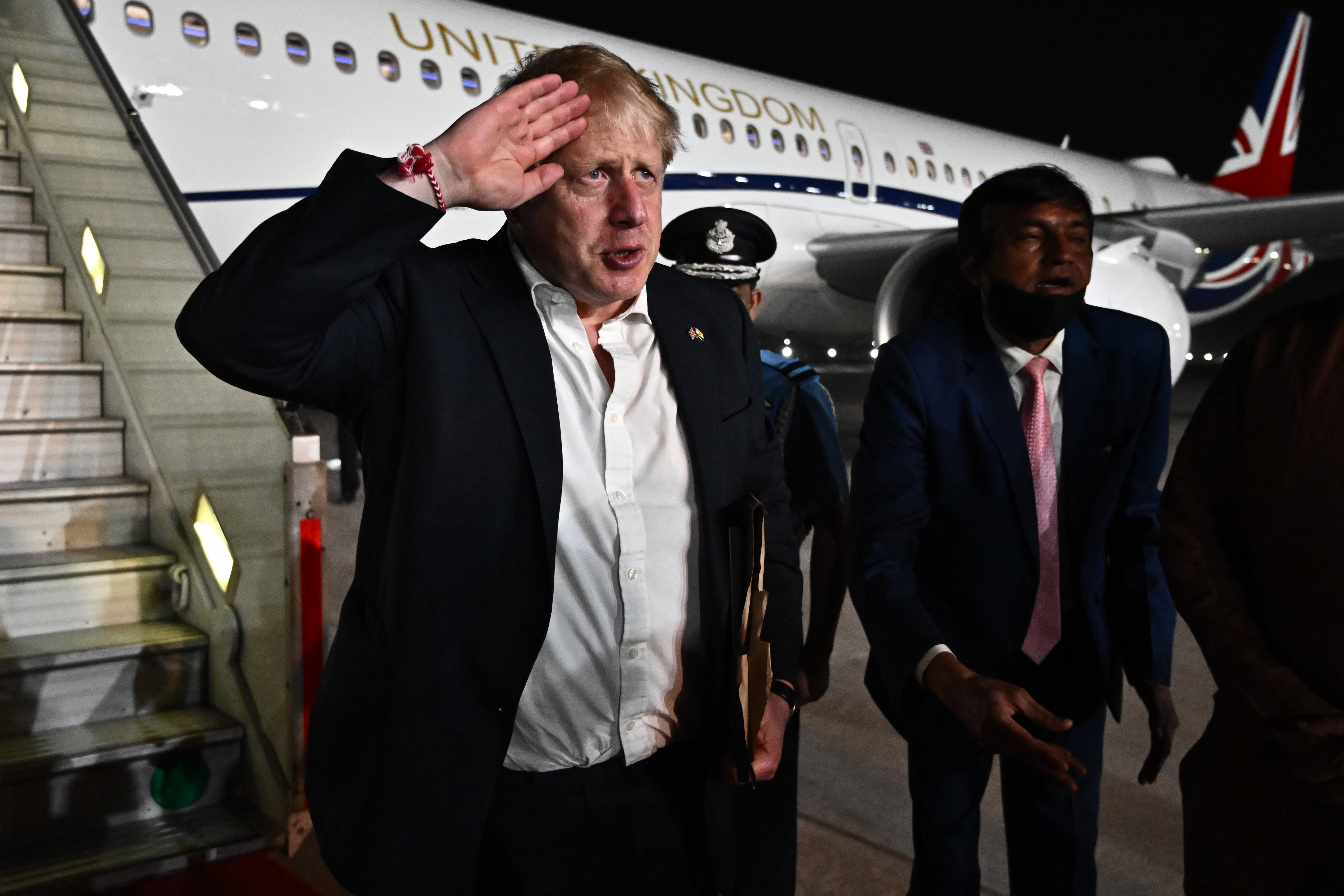The police think a party is only a party when Boris Johnson leaves it
People have been fined for attending parties that, for them, were parties, but for the PM were ‘reasonably necessary’ for work


Your support helps us to tell the story
From reproductive rights to climate change to Big Tech, The Independent is on the ground when the story is developing. Whether it's investigating the financials of Elon Musk's pro-Trump PAC or producing our latest documentary, 'The A Word', which shines a light on the American women fighting for reproductive rights, we know how important it is to parse out the facts from the messaging.
At such a critical moment in US history, we need reporters on the ground. Your donation allows us to keep sending journalists to speak to both sides of the story.
The Independent is trusted by Americans across the entire political spectrum. And unlike many other quality news outlets, we choose not to lock Americans out of our reporting and analysis with paywalls. We believe quality journalism should be available to everyone, paid for by those who can afford it.
Your support makes all the difference.At the end of four full months of investigation, at an estimated cost of £560,000, and having issued 126 fines, five of which went to just one person, the Metropolitan Police have arrived at a remarkable conclusion. Namely, that a party is only a party when Boris Johnson leaves it.
Look, it’s not like that doesn’t make a lot of sense. Any event at which Boris Johnson had been, and is now no longer, is cause enough for celebration all on its own. But that doesn’t appear to be the way it’s being received among junior staff at 10 Downing Street.
The end of the police’s Partygate investigation leaves significantly more questions than answers, not many of which they intend to answer. Fines have been issued, chiefly to junior staff, for six events at which Boris Johnson was in attendance, including one in his own flat. But the prime minister has himself received only one penalty.
It means, for certain, that – for example – he has not been fined for attending the Downing Street “bring your own booze” party, the one he attended for 25 minutes but at no point knew was a party, though other people who were present at it have.
If Johnson has wriggled free, the most likely explanation, and justification, is that 10 Downing Street is his home, not merely his office. But it does leave behind some curious questions on the subject of leadership.
Imagine being a junior member of Downing Street staff. A young man or woman, keen to do the right thing, to make a good impression. You’re invited, by the prime minister’s principal private secretary, Martin Reynolds, to a BYOB event in the Downing Street garden.
Some people you know are a bit worried about all this, on the basis that it seems as though it must be massively against all the highly draconian rules you’ve probably just been helping to produce. And there’s, you know, just something not quite right about actual Downing Street acting like the rules for everyone else don’t apply there. It’s sort of, you know, just a complete affront to everything you’ve ever believed in.
But you don’t need to worry too much about it because, you’ve been told, the prime minister’s going to be there. Surely it can’t be against the rules if the prime minister’s going? How can it be? And if the prime minister’s going, it would be a bit daft of you to tell your senior work colleagues – not your friends, your work colleagues – that you’re not going to go because you think it’s against the rules.
And yet, somehow, for some mad reason, here you are almost two years later, and you’ve received a fine from the police, a fixed penalty notice, to tell you that the police think you’ve broken the law. You’ve got a fine, but the prime minister hasn’t, even though he was there as well. You, the police think, should have known better – but not him.
And this fully insane thinking applies not just to the BYOB party, but to five others. On each such occasion, people have been fined for attending parties that, for them, were parties, but for the prime minister were “reasonably necessary” for work. And now you’re just meant to carry on in your job, like it’s all fine, knowing that you, the junior press officer, or the intern in the policy unit, will be held to higher standards than the actual prime minister.
To keep up to speed with all the latest opinions and comment, sign up to our free weekly Voices Dispatches newsletter by clicking here
It is so long since Partygate began that it’s hard to remember what the point of it was. But when Dame Cressida Dick, the now ex-Metropolitan Police chief, eventually yielded to public pressure and announced she would investigate the parties at Downing Street, she did clearly set out the threshold for retrospectively issuing Covid fines, which her force was not routinely doing.
One test was that there was evidence that those involved “knew, or ought to have known, that what they were doing was an offence”. Another, she said, was “where investigating would significantly undermine the legitimacy of the law”.
In other words, that the clearly rampant lawbreaking at Downing Street would undermine the police itself if left uninvestigated.
It is hard not to conclude that something has gone wrong somewhere. That having investigated in order to uphold the law itself, they have concluded that, despite all being in the same room, the same garden party, drinking the same wine and eating the same cheese, it was only the little people that did anything wrong.
Join our commenting forum
Join thought-provoking conversations, follow other Independent readers and see their replies
Comments